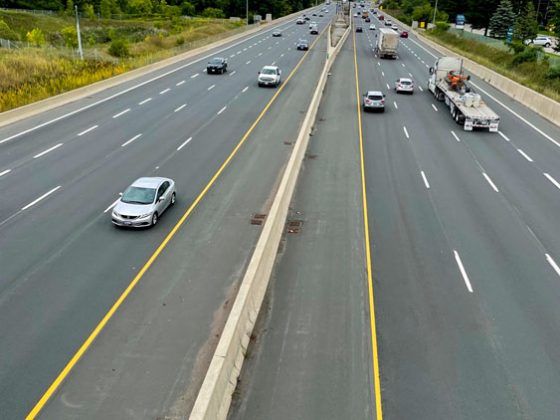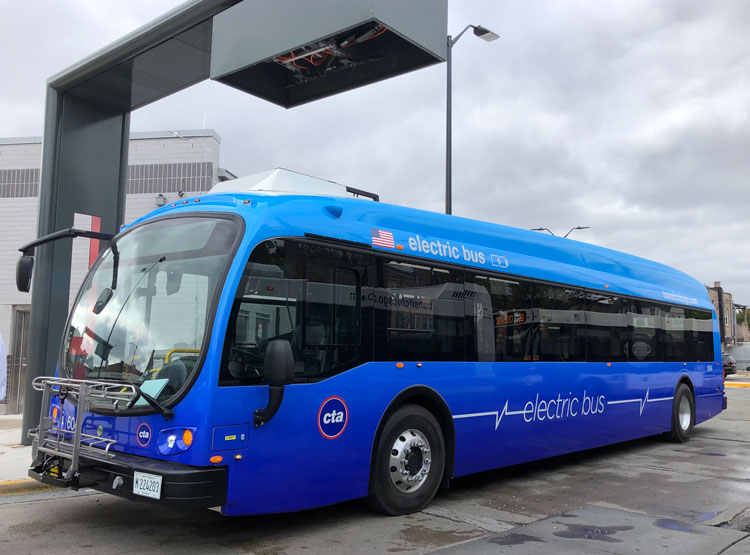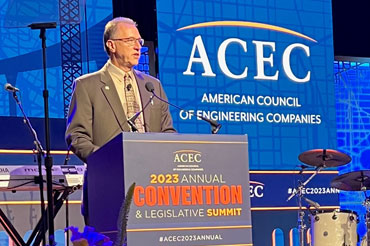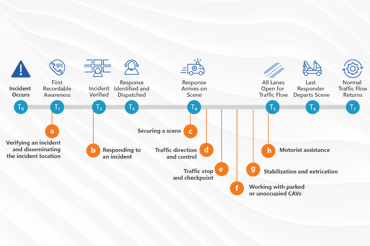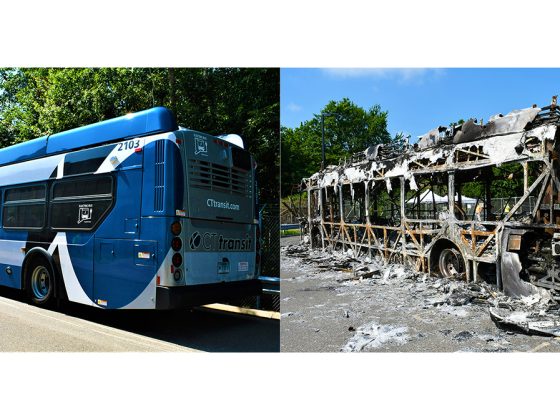Zero-Emission Fleet Planning for the Chicago Transit Authority (CTA)
Our Client’s Challenge
In April 2019, the Chicago City Council passed a resolution to electrify their entire bus fleet by the year 2040. Almost two years later, the City of Chicago unveiled Charging Forward: CTA Bus Electrification Planning Report, the first-ever roadmap for the zero-emission vehicle electrification of the city government fleet, facilities, and supporting infrastructure by 2040.
Our Solution
As part of the Chicago Transit Authority’s (CTA) Electric Bus Planning Program, Gannett Fleming performed two primary tasks to help transition the agency from the planning stages to implementation of the zero-emission fleet:
- Developed a detailed model to apply specific route and technology parameters to determine the charging infrastructure needed, including the number and type of chargers to support operations. The route modeling scope focused on Chicago Garage, 103rd Garage, 77th Garage, and Forest Glen Garage. At each location, Gannett Fleming looked at the entire vehicle fleet management network associated with that garage, including all on-route locations, to analyze route energy requirements and fast charging sequencing scenarios to reduce peak load demand and guide efficient installations.
- Developed a new chapter within the CTA Infrastructure Design Criteria Manual (IDCM) to address all necessary infrastructure improvements to implement electric bus operations at garages and on-route locations, including an exhaustive review of lessons learned and best practices from throughout the transit industry, and collaborations with local partners. The design criteria included:
- Guidance related to energy management upgrades and substation development.
- Charging system infrastructure layouts.
- Maintenance area requirements.
- Life safety upgrades.
- Fire suppression techniques.
Gannett Fleming conducted in-depth research and data collection on fire suppression, safety best practices for electric buses, and current practices in collocating electric and fuel cell buses.
Gannett Fleming partnered with GeoDecisions — the geospatial, data science, and enterprise technology division — to develop the needed simulations for the route analysis and algorithms necessary to make final fleet electrification recommendations.
Key Features
- Battery electric bus (BEB) modeling and charger sequencing to reduce peak load.
- Assessment of BEB infrastructure adoption at four garages.
- Electric vehicle charging station design criteria development for BEB infrastructure installation.
Outcomes
- Identification of specific electrical load needs at four facilities.
- Optimization of loads with a charging strategy to reduce peak requirements.
- Development of design criteria to support industry best practices for electric fleet charging, storage, and maintenance.
Awards & Recognition
- Awards. This web part is hidden.
CLIENT
Chicago Transit Authority
LOCATION
Chicago, Ill.
ROLE
Electric Vehicle Modeling
Related Projects

MassDOT Variable Message Sign Replacement and Upgrade

Route 252 Springton Reservoir Dam Spillway Bridge Improvements
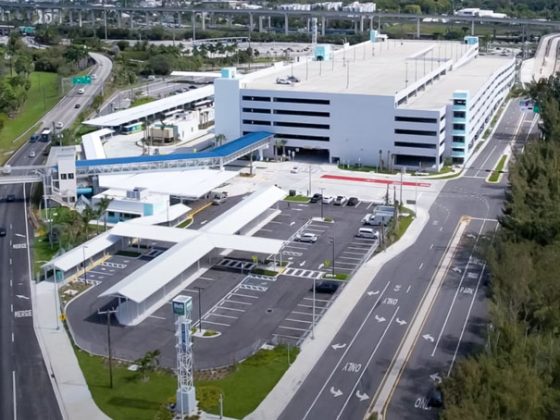
Golden Glades Multimodal Transportation Facility
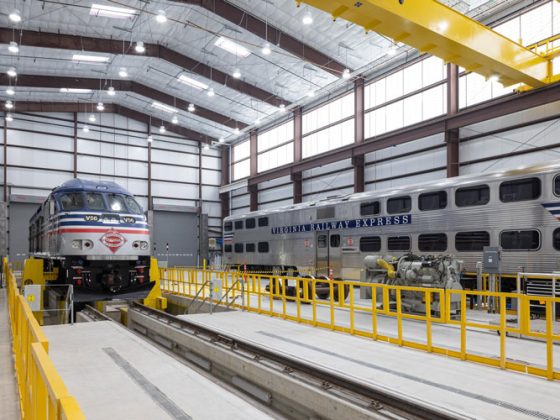
Virginia Railway Express Lifecycle Overhaul and Upgrade Facility

Lehigh Valley SR 0100 Roadway Reconstruction
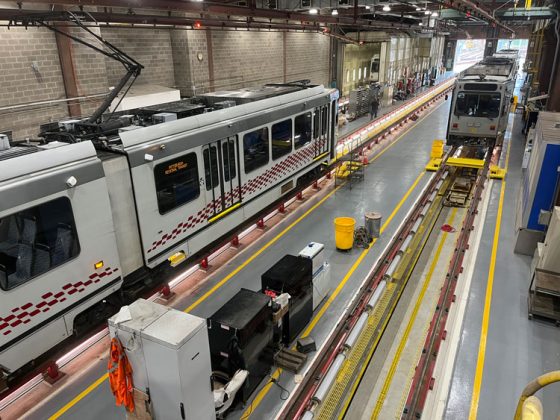
Pittsburgh Regional Transit South Hills Village Rail Center Design

Scarborough Subway Extension & Yonge North Subway Extension Projects

Nassau Inter-County Express Battery Electric Bus Charging
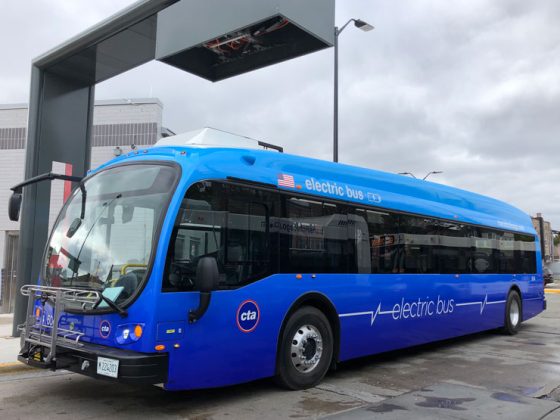
Zero-Emission Fleet Planning for the Chicago Transit Authority (CTA)

Fishtown Roundabout Construction and Intersection Safety Improvements
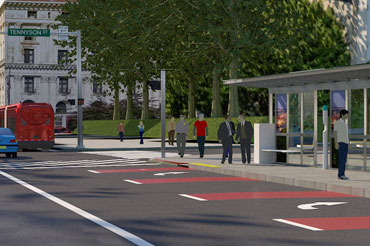
Final Design for Pittsburgh Regional Transit BRT

Oklahoma Road Usage Charge Pilot Program
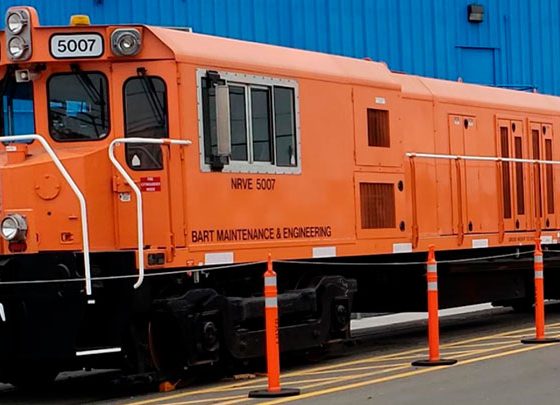
Bay Area Rapid Transit Transbay Tube Seismic Retrofit
